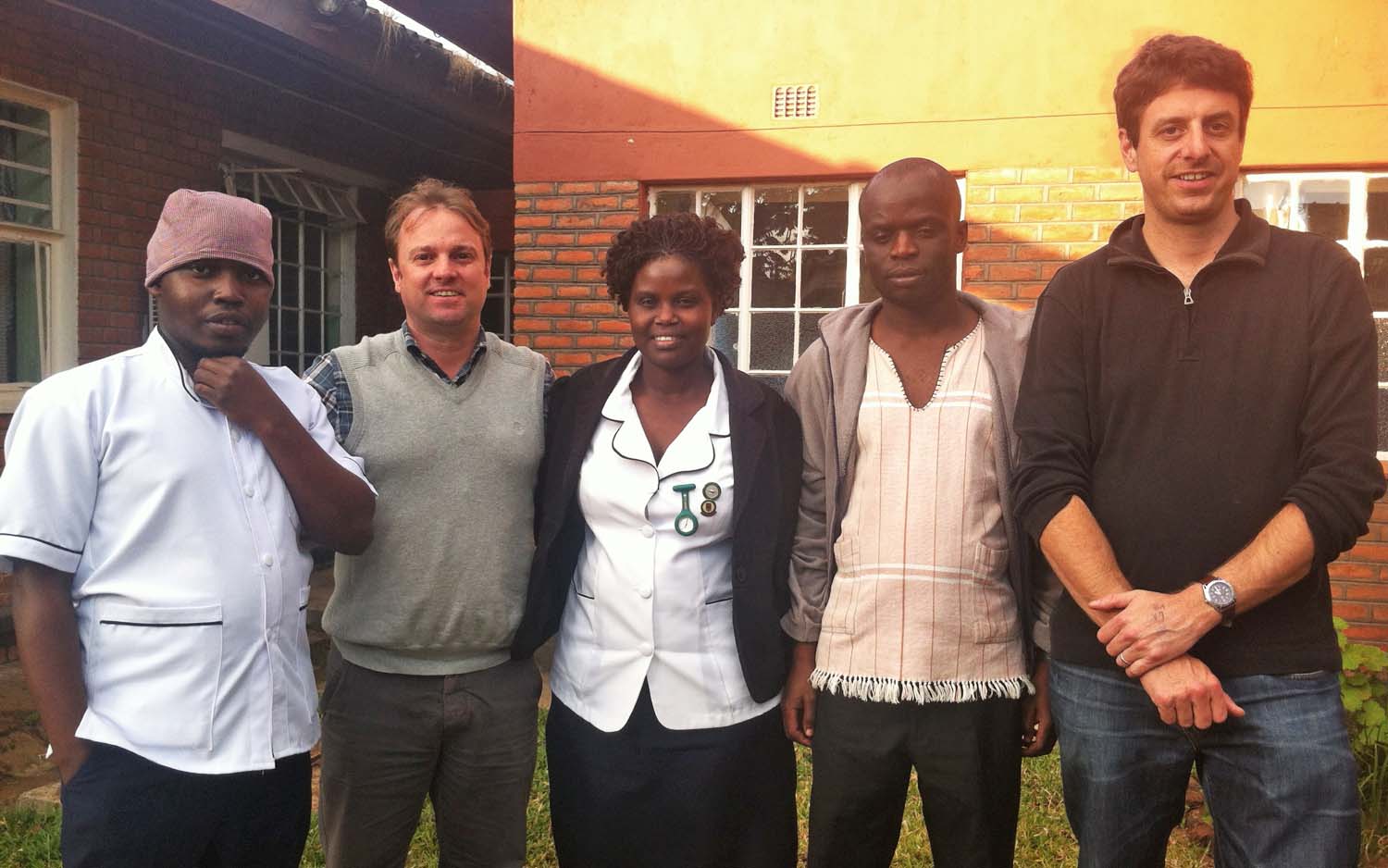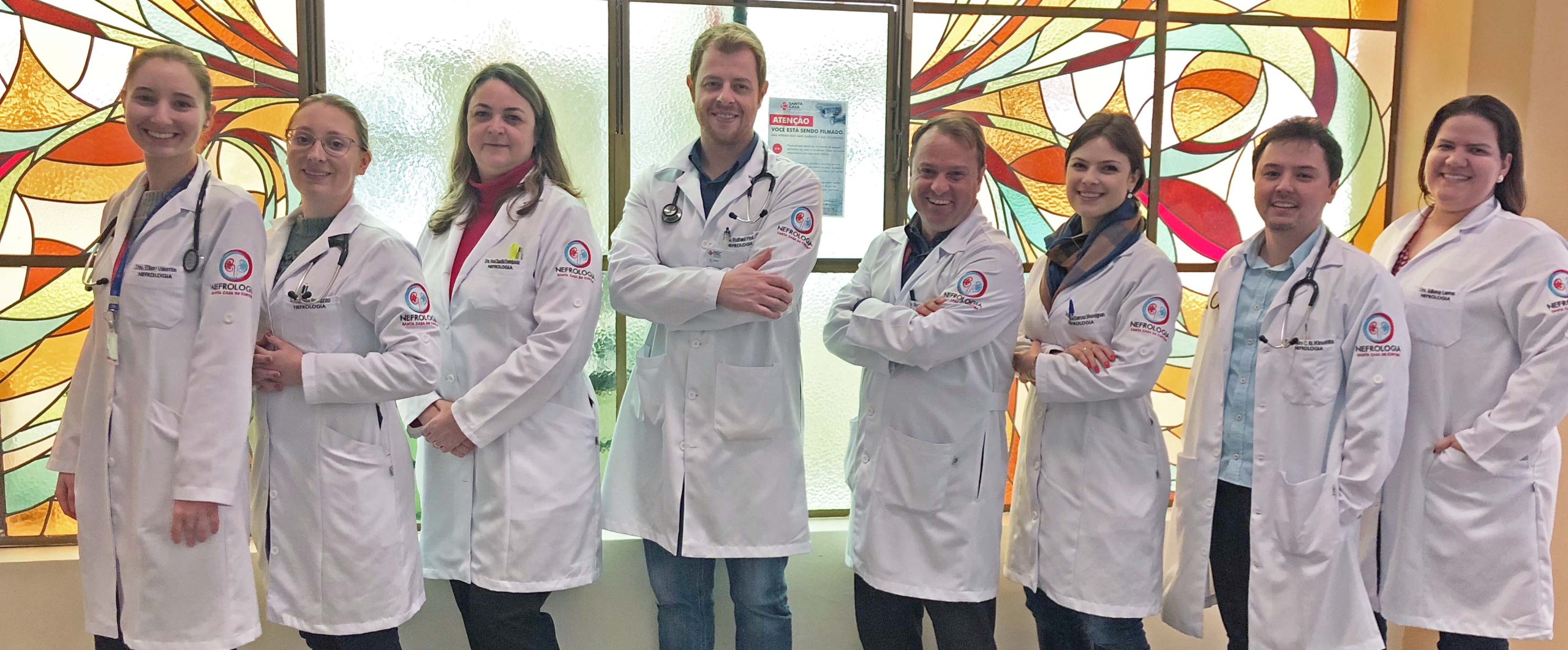
In a hospital in Blantyre, Malawi, Dr. Roberto Pecoits-Filho and his team conducted a simple saliva test with patients admitted for care. This effort identified undiagnosed kidney disease in 20% of the group. Almost 15% of the hospitalized patients died—the only independent predictor of those deaths was the patient’s level of saliva urea nitrogen. Roberto understands too well that in sub-Saharan Africa and other developing regions of the world, when faced with the challenge of such basic disparities in disease awareness and diagnosis, treatment of kidney disease can become a secondary target.

Roberto with colleagues and staff of the Queen Elizabeth Central Hospital (QECH) in Blantyre, Malawi.
Leading this and other international health projects is a passion for the newest Senior Research Scientist at Arbor Research Collaborative for Health. Roberto’s career-spanning engagement in all facets of global kidney health is the core of what makes him and Arbor Research a great partnership.
Roberto joined us in 2018. In essence, he was already a member of the Arbor Research team, having served as a Chronic Kidney Disease Outcomes and Practice Patterns Study (CKDopps) Steering Committee member and Country Investigator for Brazil since study initiation in 2014. In that role, he has been instrumental to the study success in Brazil, a support for our global research, and a creative, effective, and respectful collaborative partner. He says “I was thinking about a career change, something with a global perspective and a more effective outreach, when I saw the job post in Twitter, and thought: what a great opportunity, that is it.”
Roberto has been a global participant in nephrology throughout his career. He received his medical and research education and training in his hometown of Curitiba, Brazil. Roberto completed a nephrology research fellowship at the University of Missouri, Columbia and spent extended periods as a visiting scholar at the Karolinska Institute in Stockholm, Sweden and the George Institute in Sydney, Australia.
His career in Brazil has included many fundamental roles. Roberto served as co-chair of the Latin American Dialysis and Transplant Registry, a repository of clinical and epidemiological data from 22 countries. He also led The Brazilian Peritoneal Dialysis Multicenter Study (BRAZPD), the most extensive observational study on PD in Latin America.
Roberto has contributed to many nephrology societies and organizations over the years. He currently serves on the executive committee of the Standardizing Outcomes in Nephrology Group (SONG) Initiative, and now works on the development of new recommendations for blood pressure management in CKD by KDIGO, the global organization developing guidelines for kidney diseases. His work with the International Society of Nephrology (ISN) began about 15 years ago as Young Nephrologists committee chair, and currently, he is a member of the Executive Committee of this global society. He will continue his ISN activities with the goal of promoting access to a kidney health registry for all countries.
In addition to his work at Arbor Research, Roberto continues part-time in his role as Professor of Medicine at Pontifical Catholic University of Paraná (PUCPR), and a kidney physician at the University Hospital in Curitiba, Brazil. He feels that maintaining his active engagement in trainee mentoring and clinical care is essential to inform his ongoing research and global advocacy.

Roberto with his mentee fellows and nephrology residents at the PUCPR Santa Casa University Hospital in Curitiba, Brazil.
Roberto’s work with Arbor Research centers on research and development activities in the DOPPS Program Area. His expertise and interest in diabetes and cardiovascular disease in CKD aligns well with the DOPPS Program Area research directions. His leadership includes pursuing greater integration of the DOPPS family of studies to increase focus on the transition from CKD to kidney failure and its treatment. Roberto hopes the future will hold opportunities to promote capture and linkage of renal data through emerging technologies, particularly in underserved developing regions, with the greater objective to integrate research projects that will create low-cost alternatives for kidney disease treatment in developing countries.